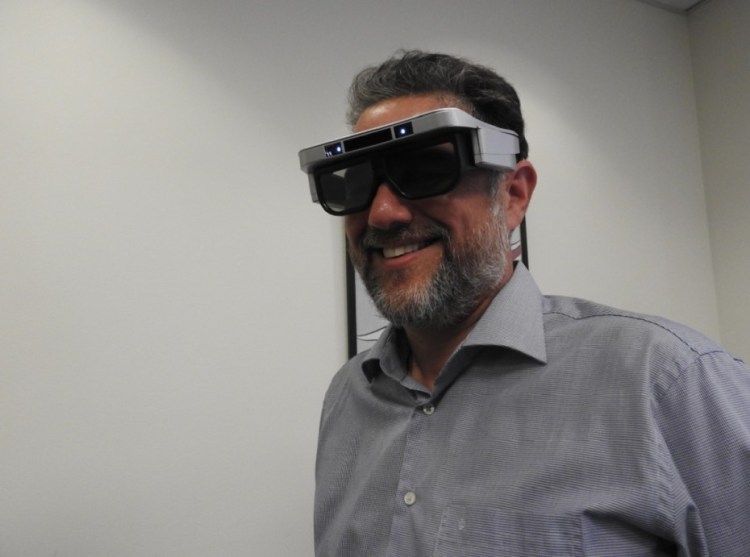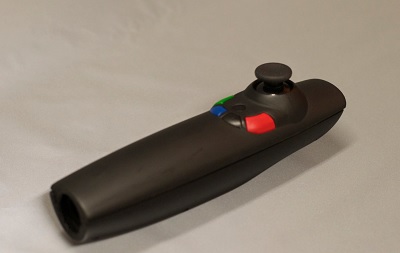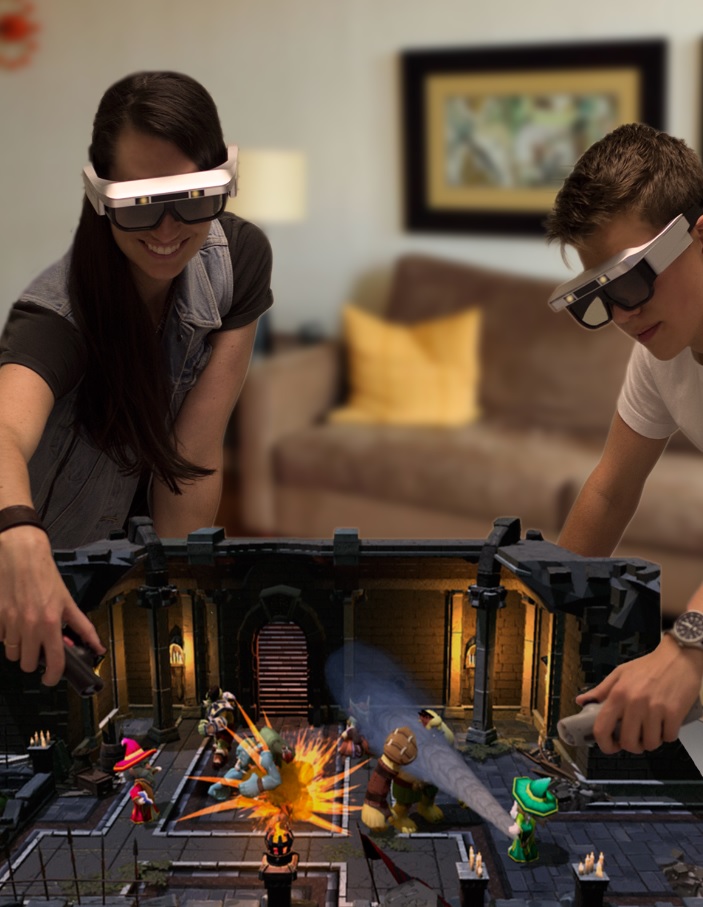CastAR is postponing the launch of its augmented reality glasses, but it is also doing something unusual. The startup is returning all of the $1 million in pledged money from its Kickstarter crowdfunding campaign to its supporters.
The company says it’s the right thing to do, even though it isn’t obligated to return the money. But CastAR still wants the goodwill of its early supporters, and it can do this because it recently raised $15 million in venture money from Playground Global, an investment fund run by Android creator Andy Rubin. CastAR still has ambitions to make a big splash in augmented reality, which tech advisor Digi-Capital forecasts will be a $120 billion market by 2020.
David Henkel-Wallace, the chief executive of Mountain View, Calif.-based CastAR, said in an interview with GamesBeat that the company decided to postpone shipments of a prototype product for the development community, which also included many non-developer consumers. Those Kickstarter supporters will get their money back and also receive a free pair of CastAR glasses when the full product is ready, sometime in 2017. All told, the supporters number about 3,000.
“We will give back exactly what our backers gave us and free glasses as well,” Henkel-Wallace said. “And we will thank them for their support. We don’t want people to feel ill-used. We are super-grateful. They committed their funds. We could have stuck to the letter of the law. We want their support.”
Some Kickstarter campaigns have gone sour.
CastAR has a lot of competition, such as Google (which might one day create a new version of its Google Glass project) or Magic Leap, an augmented reality company in Florida with a lot of funding from Google. It will also likely compete with virtual reality companies (which provide goggles that are more immersive because they put you inside virtual worlds) like Facebook’s Oculus VR. But Rubin’s investment gave the company a lot of options, Henkel-Wallace said.
CastAR was born as Technical Illusions in the greater Seattle area. It was started as a research project by Valve technologists Jeri Ellsworth and Rick Johnson to build augmented-reality glasses, or ones that can overlay animations and other imagery on top of the real world. Valve decided not to pursue the project, so Ellsworth and Johnson spun out as Technical Illusions. They raised $1 million in funding on Kickstarter in November 2013. Now they’ve moved to Silicon Valley and renamed the company as CastAR.
The CastAR glasses can project 3D holographic images in front of your eyes so that you can either feel like you’re seeing a virtual layer on top of the real world or feel like you’re immersed inside a game world. It works with glasses and a reflective sheet-like material called “retro-reflective.” While you could theoretically use the reflective sheets to animate an entire room, CastAR has decided to focus on using smaller sheets for tabletop gaming.
CastAR has shown off games where you can roll a virtual marble over an aninmated tabletop, play a game of battle chess that resembles a scene from Star Wars, and use a wand to play virtual Jenga.
“We are shifting out of Kickstarter mode into a more professional mode,” Henkel-Wallace said. “Not everyone manages that properly. We are doing this out of a position of strength. We still plan to ship a consumer product in 2017. That’s different from the original Kickstarter timeline.”
In a message to supporters, Johnson wrote, “Kickstarting CastAR provided us with the foundation that Jeri and I used to begin building both a company and the CastAR product. During the last two years we’ve learned a lot about the market we are in, how to put a business together, and the expectations set forth by you, our backers.”
Johnson said the team debated what to do. On the one hand, many backers want a product with a full set of software. That won’t be ready for some time in the future, as it has a “much more complex development cycle.”
On the other hand, the Kickstarter campaign was aimed at creating hardware suited for developers, so they could start working on software. To resolve the debate, the team decided to gve everyone who was expecting CastAR hardware a free pair of consumer glasses at the future launch, and it will reimburse people for their Kickstarter pledges.
“To further express our appreciation, we’d also like to send you a couple small thank you gifts designed just for you, our backers,” Johnson wrote. “We wear our Kickstarter success as a badge of honor, and we hope you will too….Jeri and I want to sincerely thank you for embarking on this journey with us. The entire process has been very humbling and we have especially enjoyed interacting with all of you. At the start of any journey it is not always exactly clear where you might end up.”
Henkel-Wallace said that the 2017 final product will benefit from miniaturization and cost reductions, thanks to the benefit of Moore’s Law. Thanks to its recent funding, CastAR has grown from 11 employees to 20.
VentureBeat's mission is to be a digital town square for technical decision-makers to gain knowledge about transformative enterprise technology and transact. Learn More



